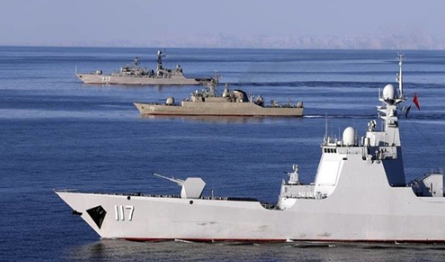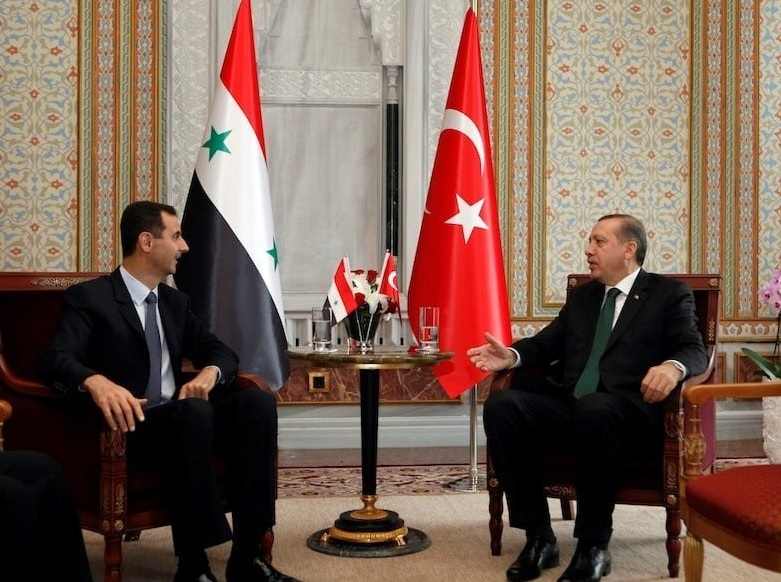
Media Review: The American magazine "Foreign Affairs" talks about that the rapprochement between Iran and Saudi Arabia can change the region
The American "Foreign Affairs" magazine, in an analysis of the Iran-Saudi deal, said that the rapprochement between Iran and Saudi Arabia could change the region, and that the United States "can no longer simply demand the Arab allies to separate from China." and unity behind the leaders to fight against Iran".
The report stated that the historic agreement between Saudi Arabia and Iran, with the initiative of China, "is capable of changing the Middle East", by re-aligning the major powers, "and replacing the current Arab-Iranian divisions with a complex network of relations", which will help to weave the region within "China's global ambitions".
The report explained that for China, this agreement is a "big leap" in the competition with the United States, because the latter tried to be the mediator between the two countries, but the Saudis believed that the involvement of China is "the guarantee for the continuation of the deal with Iran".
"Foreign Affairs" stated that "if the deal is fully implemented, Tehran and Riyadh will agree once again" because according to the new agreement, both sides will reopen the embassies, and the Saudi government will stop supporting the international Iranian television channel, "which Tehran bears the responsibility of the local opposition". .
In addition to that, the Houthis, according to the magazine, committed to a ceasefire in Yemen, agreed upon in April 2022, and based on that, the official peace agreement to end the war there.
The agreement also calls for the strengthening of economic and diplomatic relations between Iran and the countries of the Gulf Cooperation Council, and for Iran and its Arab partners to start discussions on building a new regional security framework, with China continuing to supervise all these steps.
The report points out that "it is possible that the Iran-Saudi deal alone is one of the most important competitions in the region, and will lead to the expansion of economic relations across the Gulf, so that Iran will no longer stand alone to face the alliance of the Arab regimes and Israel, and the United States hopes to take on the difficult task of containment of Tehran".
And the magazine believed that "instead, the agreement has the ability to bring Iran closer to its Arab neighbors, and to achieve gradual stability in relations in the region", pointing out that "underlining this promise, the commitment of the Saudi Finance Minister, Mohammad Al-Jadaan, that if things go well We agree, because Saudi Arabia is prone to exploiting the Iranian economy.
Later, before the actual Iranian president, an invitation to visit Riyadh at an unspecified date, in another indication of the intention of the sides to "strengthen relations".
And these steps will have important implications, asserts the "Foreign Affairs" magazine, as "Firstly, for Iran, the transformation of its policies from strengthening its interests in Europe and the United States to strengthening its interests in the Arab world has so far restored relations with the Emirates, Kuwait, and now Saudi Arabia. It extends to Bahrain and Egypt.
According to the report, "Iran's better relations with the Gulf Cooperation Council countries will reduce the threat, which has been formed by the official normalization agreements of some Arab countries, which was facilitated by the administration of former US President Donald Trump".
And secondly, regarding Saudi Arabia, "Riyadh's demonstration that if the American policy does not serve the interests of Saudi Arabia, then the Saudis will not be indebted to the alliance".
And thirdly, regarding China, "Foreign Affairs" asserts that the region is "important to China's Belt and Road Initiative, and the development of this corridor will allow China to bypass the Strait of Malacca, in the face of the formidable fleet built by the United States and its allies, and to strengthen these strategic priorities, Beijing is now ready to challenge Washington." I am the age of influence in Asharq Al-Awsat".
He points out the convergence of the broader strategic interests of China, Iran and Saudi Arabia, adding that "Beijing's breakthrough with Iran and Saudi Arabia is likely to be the basis of a new geopolitical reality in the Middle East".
This transformation represents a "historical challenge for the United States, as Washington can no longer simply demand the Arab allies to separate from China and unite behind the leadership to fight against Iran."
And the American report concluded that "this approach is old and does not match the current needs of the allies", and as one of the Saudi officials said, "the United States failed to understand that we cannot be allies at the expense of our interests", as the Saudis no longer see that their interests are theirs. The war with Iran or the confrontation with China.















































